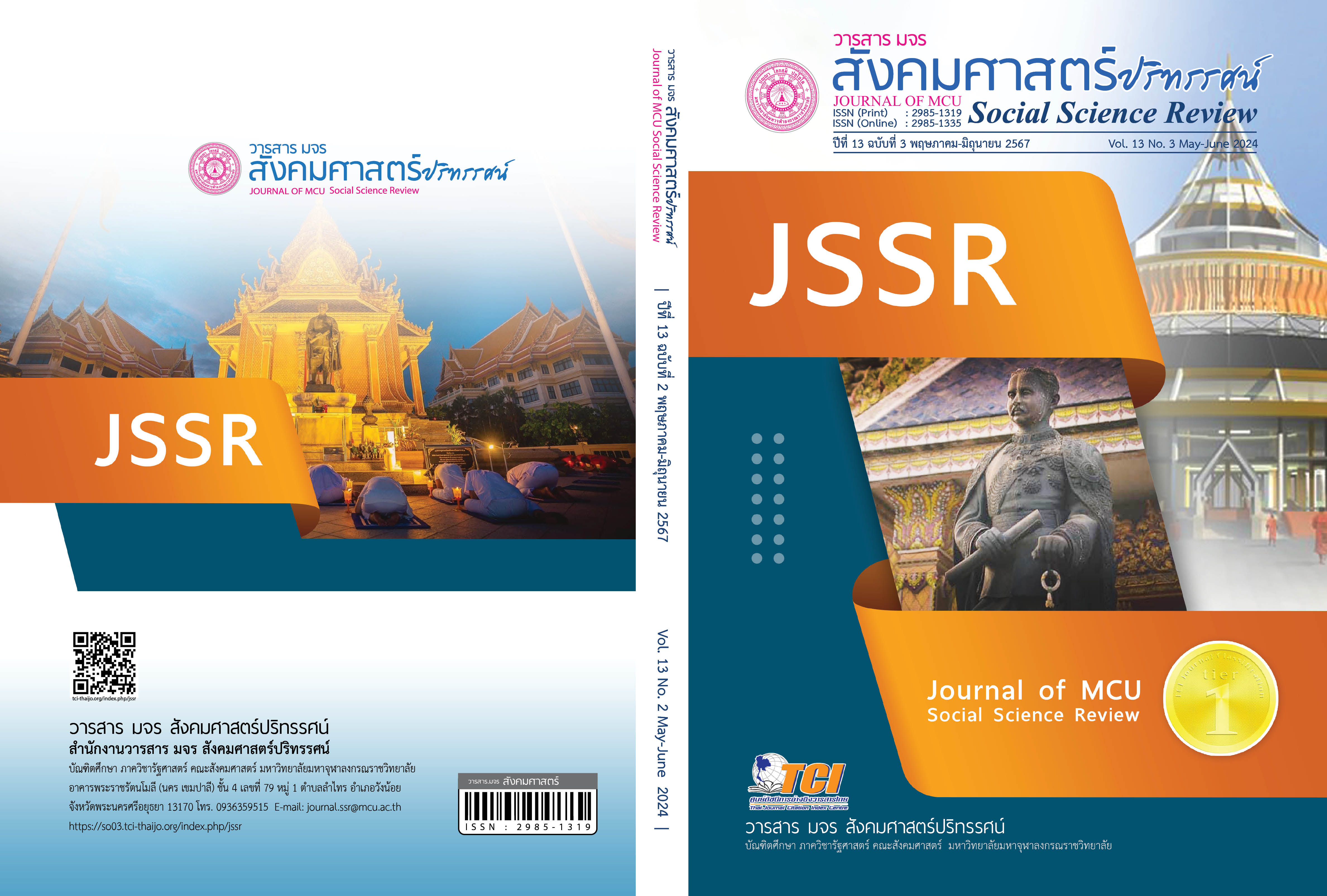A GUIDELINE IN DOING LEAN ACCOUNTING FOR SUSTAINABILITY OF LISTED COMPANIES IN THE STOCK EXCHANGE OF THAILAND
Keywords:
Lean Accounting, Sustainability, Stock ExchangeAbstract
Lean accounting has key factors that determine the success of Lean concepts: Executive leadership; Financial management of a business corporate culture and Lean expertise, Strategic cost management in the value chain in lean accounting and target costing. Lean accounting consists of elements such as analysis and measurement, bookkeeping and financial information reporting, accounting information system characteristics and accounting information transparency. This has the benefit of reducing costs by eliminating waste leading to competitiveness due to the reduction of capital in time and various waste materials in the organization. As a result, the efficiency of the accounting process is increased. Lean accounting was also found to increase efficiency in accounting processes and sustainability was in line with situational management theory. The strategy that leads to sustainability is a strategy that applies lean concepts in three areas: economic, social and environmental. Moreover, there is a positive correlation between sustainability and financial performance, Corporate Social and Environmental Responsibility Leads to Sustainable Profitability which makes the company using lean accounting to be sustainable, transparent and economical in accounting.
References
ไตรรงค์ สวัสดิกุล. (2563). การบัญชีแบบลีนในอุตสาหกรรมสิ่งทอและเครื่องนุ่งห่ม: การศึกษาเปรียบเทียบและผลกระทบต่อผลการดำเนินงานของกิจการ. วารสารเกษตรศาสตร์ธุรกิจประยุกต์, 40(1), 77-93.
นิพนธ์ กาญจนพิพัฒน์กุล. (2554). การบัญชีแบบลีน. กรุงเทพ: อี.ไอ.สแควร์.
รมิดา คงเขตวณิช. (2562). ปัจจัยที่มีผลกระทต่อการบัญชีแบบลีนและผลการดำเนินงานของวิสาหกิจขนาดกลางและขนาดย่อมในประเทศไทย (ดุษฎีนิพนธ์ปรัชญาดุษฎีบัณฑิต สาขาวิชาการบัญชี). กรุงเทพฯ: มหาวิทยาลัยศรีปทุม.
วรธิดา รัตนโค้น. (2559). การประยุกต์ใช้แนวความคิดแบบลีนมาปรับปรุงกระบวนการทำงานของแผนกบัญชีกรณีศึกษาของ บริษัท เอ็มเอ็มทีเอช เอ็นจิ้น จำกัด จังหวัดชลบุรี. สืบค้น 23 พฤษภาคม 2565, จาก https://shorturl.asia/nv41R
Achanga, P. et al. (2006). Critical success factors for lean implementation within SMEs. Journal of Manufacturing Technology Management, 17(4), 460-471.
Adam, S. et al. (2016). Industry 4.0 Implies Lean Manufacturing: Research Activities in Industry 4.0 Function as Enablers for Lean Manufacturing. Journal of Industrial Engineering and Management, 9(3), 811-833.
Allawi, K. M. et al. (2019). The compatibility between lean accounting and cleaner production for achieving competitive advantage. Polish Journal of Management Studies, 20(2), 202-218.
Amusawi, E. G. et al. (2019). Impact of lean accounting information on the financial performance of the healthcare institutions: A case study. Journal of Engineering and Applied Sciences, 14(2), 589-399.
Darnall, N. & Edwards Jr, D. (2006). Predicting the cost of environmental management system adoption: the role of capabilities, resources and ownership structure. Strategic management journal, 27(4), 301-320.
Fahriye, U. (2012). An integrated model for sustainable performance measurement in supply chain. Elsevier Journal, 62(6), 689-694.
Fullerton, R. R. et al. (2014). Lean manufacturing and firm performance: The incremental contribution of lean management accountingpractices. Journal of Operations Management, 32(7-8), 414-428.
Garza, R. & Jose, A. (2015). Lean and Green – A systematic review of the state of the art literature. UK: The University of Derby.
Gerald, K. (2012). Use Lean Accounting to Add Value to the Organization. The Journal of Corporate Accounting & Finance, 23(3), 35-41.
Haber, J. P. (2008). Lean Accounting Best Practices. Knoxville: University of Tennessee.
Heesup, H. & Ryu, K. (2009). The Roles of the Physical Environment, Price Perception, and Customer Satisfaction in Determining Customer Loyalty in the Restaurant Industry. Journal of Hospitality & Tourism Research, 33(4), 487-510.
Hernadi, B. H. (2012). Green accounting for corporate sustainability. TMP, 8(2), 23-30.
Maskell, B. H. & Baggaley, B. L. (2003). Practical Lean Accounting. A proven system for measuring and managing the lean enterprise. New York: NY.
Maskell, B. H. (2014). Lean Management Accounting. Retrieved September 10, 2022, from https://shorturl.asia/e9E0k
Maskell, B. H. et al. (2011). Practical Lean Accounting: A Proven System for Measuring and Managing the Lean Enterprise. Boca Raton: CRC Press.
Womack, J. (1996). Lean Consumption form EE Manufacturing Engineer. USA: McGraw Hill.
Womack, J. P. et al. (1990). The Machine that Changed the World. New York: Simon and Schuster.
Downloads
Published
How to Cite
Issue
Section
License
Copyright (c) 2024 Journal of MCU Social Science Review

This work is licensed under a Creative Commons Attribution-NonCommercial-NoDerivatives 4.0 International License.
In order to conform the copyright law, all article authors must sign the consignment agreement to transfer the copyright to the Journal including the finally revised original articles. Besides, the article authors must declare that the articles will be printed in only the Journal of MCU Journal of Social Sciences. If there are pictures, tables or contents that were printed before, the article authors must receive permission from the authors in writing and show the evidence to the editor before the article is printed. If it does not conform to the set criteria, the editor will remove the article from the Journal without any exceptions.





